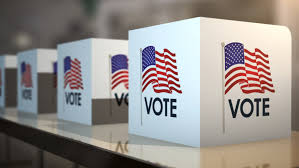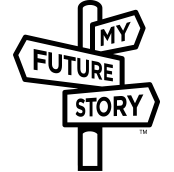
Talking About or Teaching Elections
Want to talk to kids about elections without getting into partisan discussions – there is still a lot of important information to discuss, whether you are in a classroom or at home with your own kids. Here are some tips and topics.
Tip #1: Set ground rules. If you know you need to set boundaries about discussing political parties or candidates – than do so at the beginning.
www.Vote411.org is a bipartisan site which gives information about the ballots, voter registration and candidates all across the country.
Tip #2: If you are in a classroom, you could select a different county than your own to use ballots as an example, to avoid heated discussions about local personalities running on the ballot.
It is important to help students understand (and voters) that every race on a ballot is important. Understanding the role of the jobs people are running for is necessary to make educated decisions.
For example, City Council members are instrumental is funding parks, libraries and other city services. They often decide which parts of the city a business can be built in or what types of businesses can be built close to homes or schools. This can create an important discussion about how students view their communities and what they think is important near home. The news they hear may not ever inform them that voting shapes these decisions.
Some people might be tempted to skip over elections like County Commissioner or judges, but the Commissioners (in Texas and many other states) determine county taxes, road repair, jail budgets, unified safety codes and inspections for restaurants and many other services. Judges are responsible for presiding over courts and applying the laws during legal disputes. The experience judges gain in lower courts also make them more qualified to move to higher courts during their career. The people we elect to these positions impact citizens our community every day of our lives.
Some states elect their local sheriffs, others don’t.
Some states elect judges and include what party they belong to, other states exclude party affiliation or don’t elect their judges at all. Here the list dividing those states. This could create a good discussion about the pros and cons of each method of selecting judges.
https://ballotpedia.org/Judicial_election_methods_by_state
Whose allowed to vote (including when and how to register to vote) and the different methods for voting have been in the news a lot. Some standards reach across the country, others are by state. Here is a good guide to find the differences between states or at least to learn about your state’s requirements.
https://ballotpedia.org/Voting_in_2020
Tip #3 This topic has seen a lot of last minute law suits around procedures and methods, so don’t be surprised if your printed materials provided by school or state are different.
There are so many topics around voting and elections, this just includes a few. There are endless topics to be discussed which do not include the hot buttons of the candidate topics. I hope the patrician bickering isn’t keeping the topic of elections removed from your home or classroom.
Comments are closed.
